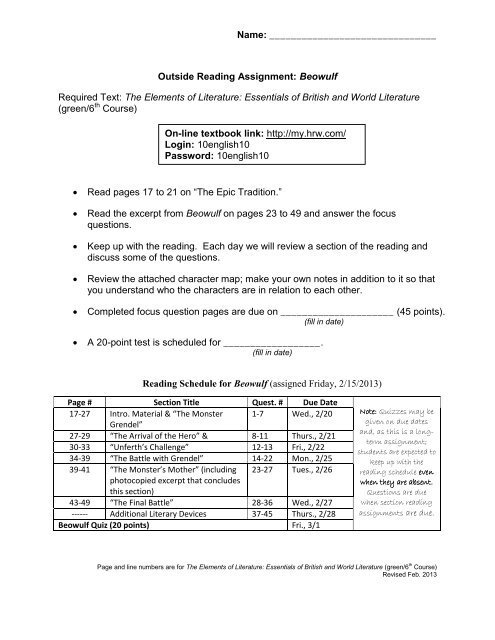Beowulf Italiano Pdf

Front cover of the 2014 hardback edition, titled 'Hringboga Heorte Gefysed' Editor Author Anonymous (Beowulf) J. Tolkien (Sellic Spell) Translator Cover artist J. Tolkien Country United Kingdom Language English, Old English Subject Genre Published 22 May 2014 Publisher Pages 425 (Hardback) Preceded by Followed by Beowulf: A Translation and Commentary is a prose translation of the early medieval epic poem from to modern English language. Translated by from 1920 to 1926, it was edited by Tolkien's son and published posthumously in May 2014.
Khwab dekhe jhoote moote remix mp3 free download full. This paper explores the appropriation of the Old English poem Beowulf by such a distinc. Topic has received throughout time: Enrico Basari's Italian Beowulf:.
Csi safe v14 keygen crack patch. In the poem,, a hero of the in Scandinavia, comes to the aid of, the king of the, whose has been under attack by a monster known as. After Beowulf slays him, attacks the hall and is then also defeated. Victorious, Beowulf goes home to in Sweden and later becomes king of the Geats. After fifty years have passed, Beowulf defeats a, but is fatally wounded in the battle. After his death, his attendants bury him in a, a burial mound, in Geatland. The translation is followed by a commentary on the poem that became the base for Tolkien's acclaimed 1936 lecture '. Furthermore, the book includes the previously unpublished ' and two versions of 'The Lay of Beowulf'.
The former is a fantasy piece on Beowulf's biographical background while the latter is a poem on the Beowulf theme. Main article: Beowulf, a prince of the Geats, and his followers set out to help king Hroðgar of the Danes in his fight against the monster Grendel. Because Grendel hates music and noise he frequently attacks Hroðgar's mead hall killing the king's men in their sleep. While Beowulf cannot kill Grendel directly in their first encounter, he still wounds him fatally.
Afterwards he has to face Grendel's mother who has come to avenge her son. Beowulf follows her to a cavern beneath a lake where he slays her with a magical sword. There he also finds the dying Grendel and decapitates him. Beowulf returns home to become king of the Geats.
After some 50 years, a dragon whose treasure had been stolen from his hoard in a burial mound begins to terrorize Geatland. Beowulf, now in his eighties, tries to fight the dragon but cannot succeed. He follows the dragon to his lair where Beowulf's young relative joins him in the fight. Eventually, Beowulf slays the dragon but is mortally wounded. In the end, his followers bury their king in a mound by the sea. Reception [ ] Tolkien's translation of Beowulf has been compared to 's translation from 2000. Writes that since Tolkien was not a professional poet like Heaney, he had to make compromises in translating the original Old English epic.
According to Acocella, Heaney's focus on rhyme and makes him occasionally lose details from the original that remain in Tolkien's prose version. Tolkien's version stays closer to the details and rhythm of the original and also very close to the original sense of the poem, which has been attributed to Tolkien's scholarly knowledge of Old English, whereas Heaney, on the other hand, succeeded in producing a translation suited for the modern reader, more so than Tolkien's. The publication also caused some controversy among scholars. Beowulf expert and University of Kentucky professor, called it a 'travesty', and criticism was also offered by professor Daniel Donoghue.
Writing for, Kiernan cites J. Tolkien himself who disliked his own translation. According to Kiernan, any prose translation of Beowulf will neglect the 'poetic majesty' of the original. Lecturer Philippa Semper instead called the translation 'captivating' and 'a great gift to anyone interested in Beowulf or Tolkien.' Wrote in his review 'The exclusion of [Tolkien's] alliterative poetic translation from the edition is more puzzling. This translation is a well-done piece of poetry, truer to the original in both form and content than any other poetic translation of Beowulf.general readers would very likely enjoy the poetic translation more than they will the prose.'